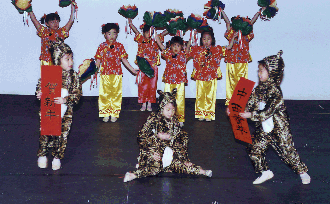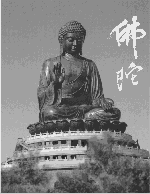|
This Webpage Title:
China - Festivals
China - Hong Kong - Macau

  
Boasting rich cultural meaning and a long history, traditional Chinese festivals compose an important and brilliant part of Chinese culture.
Most traditional festivals took shape during the Qin Dynasty (221-206 BC). In the most prosperous Tang Dynasty (AD 618-907), traditional festivals liberated themselves from primitive sacrifice, taboo and mystery and became more entertaining.
From then on, festive occasions turned more brisk and exciting and more and more folk customs were developed.
| |
 |
|
|
Spring Festival |
|
|
 |
|
|
Lantern Festival |
|
|
 |
|
|
Qingming Festival |
|
| |
 |
|
|
Dragon Boat Festival |
|
|
 |
|
|
Double Seventh Festival |
|
|
 |
|
|
Mid-Autumn Festival |
|
| |
 |
|
|
Double Ninth Festival |
|
|
 |
|
|
Winter Solstice Festival |
|
|
|
The Chinese Festivals occur throughout the Lunar year. As our calendar year and the Lunar year is different, the festivals fall on different dates each year. Each festival is rich on tradition, excitement and participation. The fast pace of Hong Kong slows as the city celebrates in spectacular bright lights and decoration. Festivals are a very important part of Chinese tradition. The particular festivals discussed here are of special interest to the young and knowing a bit more about them will help you enjoy and to participate in these magic celebrations.
Chinese New Year

The Chinese New Year is the most important of all the festivals. It is a time of centuries old tradition. The date of the New Year falls somewhere between late January and late February, depending on the Lunar (moon) calendar. A few weeks before, homes are cleaned thoroughly in preparation for the holiday. Tangerine plants, flower displays, Chinese paintings and calligraphy are sold to eager buyers. Hong Kong is laden with brightly coloured decorations, stores are packed with shoppers. The Chinese New Year is a time of settling all debts and spreading good intentions to family and friends.

The eve of the New Year is a special time for family and friends. All preparations have been made, including prayer and homage to "Tso Kwan", who returns to heaven to report on the behaviour of the humans for the year. "Tso Kwan" means "Stove Master" and he is the kitchen god of China.
The actual New Year day is spent with close friends and relatives, worshipping ancestors and gods. New clothes and new shoes are worn to symbolize the New Year and red packet containing small amounts of money are exchanged. The second day of the New Year is spent with relatives welcoming the beginning of the year. Next is "Kai Nien" or "Squabble Day" on the third day of the festival. It is called this name because it is believed that if you argue on this day, you will have many arguments during the coming year. The fourth day of the New Year is a day of welcoming back the kitchen god from his tiring trip to heaven. A new picture is hung in the kitchen.
People honour the "God of Wealth", hoping he will bring great fortune to the family in the coming months. The seventh day of the New Year is "All Person's Day", a day devoted to the celebration of the birth of every person.
On the fifteenth day of the New Year, a spectacular three day festival of lanterns begins. Lanterns bearing the symbols of good fortune, happiness and health are purchased and hung in homes. At the end of the lantern festival, the New Year festivities are over and life in Hong Kong settles back to its normal pace. Throughout the New Year period, "Lion" dances are performed all over Hong Kong and Kowloon. The "Lion" is a huge, multi coloured paper-mache head with a long multi colored train. Two people are inside the head moving the giant puppet with precision and ease from the background drum beat. The lion will move through every emotion, from happiness and gaiety to the deepest sorrow. It takes years of practice to become a professional lion dancer as it requires coordination and skill to "dance the lion". You will hear exploding fire crackers throughout the charged and spectacular celebration.
Chinese New Year Link Page
Ching Ming
The Ching Ming festival is celebrated in April and is known as "Remembrance of Ancestors Day". This day is devoted to honouring relatives who died. Thousands of Chinese visit cemeteries to clean the graves of their loved ones. The Chinese hold great respect for their ancestors and the young are taught to pray to, and for, the family spirits. Young people accompany their parents to the gravesite and help in the cleaning process. The "willow" is regarded as the symbol of light and enemy of darkness in Chinese culture. On Ching Ming, willow twigs and branches are hung in doorways to ward off the evil spirits. It is believed that if you don't hang the willow, you will appear as yellow dog in your next life!
Tin Hau (T'ien Hou)
The Tin Hau festival is celebrated on the 23rd day of the Third Moon (late April, early May). The day is set aside to honour a young girl named Mo Niang. She was re-named Tin Hau, the "Queen of Heaven", and is the "Mother" of boat people and sailors.
Tin Hau was born in Fukien in the year 1093. Legend tells a story that she bid her father and brothers farewell as they went off fishing. She went to sleep and had a dream they were drowning. She flew over the waters on clouds and rescued her family just as they were about to drown.
Tin Hau is also said to have been able to predict storms and sea traveller's fortunes. She died at the age of twenty and received her title shortly afterwards.
There are numerous shrines and temples dedicated to her spirit. On her birthday, the boat people, sailors and those who live on the waterfront, sail to Da Miao (the Great Temple) in Joss HoUse Bay and pay their respects to the goddess, praying for safety in the coming year.
Birthday of Buddha

Lord Buddha's birthday is another springtime festival. It is observed on the eighth day of the Fourth Moon. Legend has it that at the moment of Buddha's birth, nine dragons spat on the water. Buddha is the sacred name given to a man called Siddhartha Gautama, the founder of the Buddhist religion. He is called Buddha by his followers, which means "The Enlightened One".
Buddha lived about 2,500 years ago. Although the facts of his life are scarce, his followers recorded his teachings. He believed in the search for one's self. The Four Noble Truths are the core of his teachings. First is the noble truth of unhappiness in life, then the truth of the cause of unhappiness, and the noble truth of the way to stop unhappiness, and finally, the noble truth of that which leads to the end of unhappiness Compassion is the significant base of Buddhist life.
There are many Buddhists in Hong Kong and many temples and shrines. On the birthday of Buddha, also called the Festival of Ten Thousand Buddha's, his religious followers pray for the washing away of sin and the attainment of wisdom and peace.
Cheung Chau Festival (Festival of the Bun Hills)

The Cheung Chau Festival begins on the eighth day of the Fourth Moon and lasts for four days. It is one of the most unusual and dangerous of all Chinese festivals. Four days of religious rites, Chinese operas and the burning of paper clothing as gifts, is supposed to make ghosts and edgy spirits happy. Hong Kong takes on a party like atmosphere, with processions and celebrations at every turn.
Huge structures towering in the sky have been built and covered to the top with bread buns. In the past, a signal was given and the young scrambled up the towers, picking as many buns as they could hold. It is believed the more buns you grabbed, the more good luck blessings you received. The date and time of this unique ceremony are announced a week before.
The processions and parades held during this time are spectacles of colour. People dress up as legendary figures, ride on flowered floats and walk on stilts. The young play a major role in the processions with children perched above the crowd in makeup and costumes. They almost seem suspended in air.
Tuen Ng (Dragon Boat) Festival
Dragon Boat Festival is an exciting event in Hong Kong. It is held on the fifth day of the Fifth Moon, usually in June. The day is set aside to honour the death of Wut Yuan, the famous Chinese port and patriot.

Chu Yuan was a high court official of the State of Chu in the period of the warring states. Wut Yuan wrote beautiful and passionate poems for his country, against the evil officials.
Eventually, he became disillusioned and he took his own life by drowning himself in the Milo River. People were so upset by the loss of Wut Yuan, they took to boats and beat the water with paddles to stop the fish from eating his body. They also threw rice dumplings into the water to tempt the fish away from their hero.
Today, the Dragon Boat races commemorate Wut Yuan's death. The boats, ranging in length from 45 to 120 feet long, are decorated with colourful pennants and a fierce head of a dragon at the front of the boat, driving it on to victory. The dragons are searching the water for Wut Yuan's body, symbolically, of course.
Dragon Boat races are held at Yaumati Typhoon Shelter, Aberdeen, Shaukiwan and Stanley Beach. Many local companies sponsor dragon boat teams. Practice and precision are needed to become part of a team. Picnics and festivities on the beaches, as well as the excitement of the races, make this a day not to be missed.
Mid Autumn Festival
This festival is held on the fifteenth day of the Eight Moon and its popularity and participation for the young is second to the New Year Festival.
During the Tang Dynasty (618 - 907), Chinese leaders took up the practice of watching the moon. This day is set aside just for this purpose. People travel to high places to make sure they have a good view of the moon. Traditionally, children carried lanterns of animal shapes lit by candles.
Now, the lanterns are found in every shape and material imaginable. Dogs, cats, airplanes, yachts, speedboats, pictures of gods, sharks and assorted fish lanterns are sold at very reasonable prices at the Chinese Emporium, all Chinese department stores and in market stalls.
As darkness approaches, the hills of Hong Kong, Victoria Park, the Peak, and the beaches are shimmering with the glow of lantern lights. It seems as though a sprinkling of stars have descended on Hong Kong. This night is an event no one under the age of 100 should miss. It is an evening for children of all ages.
"Mooncakes" are also an important part of the festivities. Many years ago in the 14th Century, a revolt against the Mongols developed, and messages of the revolution were written on paper, then baked into the cakes. The secret messages were smuggled to the revolutionists. Things are much tamer now, and the mooncakes are given to friends and relatives during the festival. These pastries are a mixture of ground lotus,mashed beans, sesame seeds and dates.
Lantern festival is a magic time for the young as they carry their lamps lighting the way for adults to pay their respects to the moon. It is a Chinese festival in which children of all nationalities take part.


|